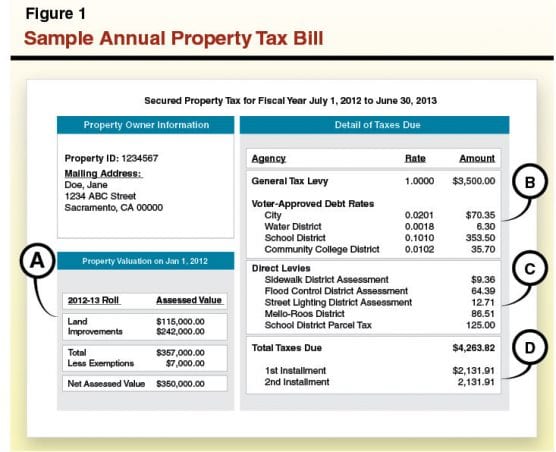By Nick Cahill
SACRAMENTO – In two years, California voters will have the chance to approve wholesale changes to a landmark property tax code and squeeze billions in new taxes from state businesses.
Voting officials say backers of a measure to roll back portions of Proposition 13, which set base property tax rates at 1 percent of assessed value and severely limited annual tax increases, have collected enough signatures to land an initiative on the November 2020 ballot.
Approved by nearly 63 percent of voters in 1978, Proposition 13 was a hallmark victory for California conservatives and anti-tax advocates. Currently, residential and commercial properties are only reassessed when they are sold, allowing long-time owners to maintain steady and lower tax rates than newer property owners.
Critics claim the 40-year-old measure is a “tax loophole” that deprives the state of billions in taxes each year.
The proposal would create what’s known as a “split-roll property tax” so commercial properties will be taxed at market value while leaving in place current tax rules for residential owners. Large commercial properties would be reassessed every three years, and smaller businesses and farming properties would be exempt.
Proponents claim the proposed tax reform could produce up to $11 billion and that the new tax revenues would be split between local governments and schools.
“Much of the money pocketed through the existing loophole flows to out-of-state and foreign shareholders,” the proposal states. “Reassessing commercial property would ensure that money stays here in California.”
The Schools and Communities First campaign points to a University of California, Santa Cruz, study which suggests that a split-roll tax system would boost the Golden State’s economy.
“In addition, major endorsements from elected officials like state Sen. Connie Leyva, and a unanimous vote of support from the Los Angeles Unified School District, the largest in California and second largest in the nation, have helped compound recent momentum around the initiative,” said campaign spokesperson Veronica Carrizales in a statement.
Backers include the League of Women Voters of California and California Calls, an alliance of 31 community-based organizations.
The Howard Jarvis Taxpayers Association – named after the leading Proposition 13 proponent – and other anti-tax groups will have over two years to lead the charge against the measure. The association for months has been celebrating the 40th anniversary of Proposition 13 with radio ads and newspaper opinion cameos.
“In the finest tradition of the Boston Tea Party, California taxpayers stood up and said ‘no more!’ to excessive taxes,” the association’s website proclaims. “The Proposition 13 Revolution swept the country and made headlines around the world.”
The tax reformers may face an uphill battle, however. A June 2018 poll found a majority of likely California voters feel Proposition 13 turned out to be a “mostly good thing for the state,” including 66 percent of respondents 55 years and older. When asked about implementing a split-roll tax system, 46 percent were in favor with 43 percent opposed.
Backers could also choose to pull the newly qualified measure before the 2020 general election.
Like this:
Like Loading...
Related





 Tweet This
Tweet This Facebook
Facebook Digg This
Digg This Bookmark
Bookmark Stumble
Stumble RSS
RSS


























REAL NAMES ONLY: All posters must use their real individual or business name. This applies equally to Twitter account holders who use a nickname.
2 Comments
Increases in business property taxes will be passed along to consumers.
What happened to the affordable housing movement?? This bill will guarantee massive rent increases initially, then every three years thereafter depending on new assessment. And in the end the money will ultimately go for welfare and other entitlement programs, just like the Lottery money shuffle scam. Notice the taxpayer is never asked whether we want to pay for more entitlement programs, just school, police, fire and now even road and bridge repairs.